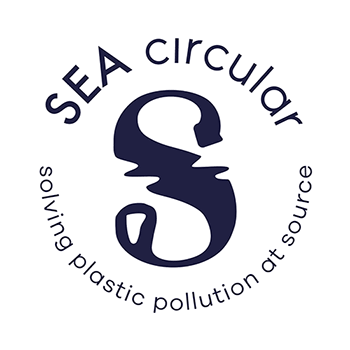
Causes and challenges
There is extensive leakage of plastic waste into water and waste water in Viet Nam, ultimately leading to marine litter and plastic pollution. This is due to uncollected waste and the current waste collection, transportation and disposal practices.
Viet Nam accounts for 0.28 – 0.73 million tonnes per year of marine plastic leakage. The main sources of plastic marine debris consist of widely used plastic products and mismanaged municipal solid waste.Ha Long bay is a prominent natural heritage site, and Cat Ba is a world biosphere reserve. Both these areas have unique marine ecosystems which are extensively impacted by plastic pollution.
Waste generation starts from the point of consumption and extends to its collection and disposal.The total estimated municipal solid waste (MSW) generation in Viet Nam is about 19 million tonnes per year (2015). The average waste generated per capita is about 1.20 kg/person/day. The unmanaged plastic waste component of MSW during its collection, transportation & disposal gets leaked into the ocean.
Ways forward
Viet Nam has basic policies, strategies and action plans – including an environmental regulatory framework – to address requirements for waste management. Viet Nam intends to pursue waste reduction and waste minimization, leading to “Zero Waste”. There are plans to increase recycling rates, promote resource efficiency and green the supply chain. Viet Nam has committed to address marine litter and plastic pollution and achieve SDG 14, target 14.1. As part of this commitment, Viet Nam has participated in the UN Conference on Sustainable Development (Rio +20) and other multilateral and intergovernmental fora on the protection of marine environment, and the prevention and reduction of marine debris.
Opportunities for further action include: Enhancing financial resources and technical capacities for sustainable solid waste management; translating national waste management targets into strategies and action plans; designing and implementing a specific packaging waste directive or law, and; applying Extended Producer Responsibility (EPR) for packaging waste.
Download SEA circular country profile for Viet Nam for more information

